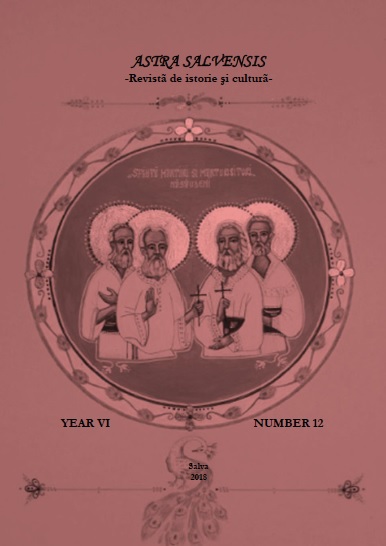The Mortality Theme in A.I. Herzen’s Novel Who Is To Blame?
The Mortality Theme in A.I. Herzen’s Novel Who Is To Blame?
Author(s): Tatiana ShvetsovaSubject(s): Social Sciences, Education, School education, Adult Education, Sociology of Education
Published by: Asociaţiunea Transilvană pentru Literatura Română şi Cultura Poporului Român - ASTRA
Keywords: mortality; death; immortality; initiatory component of mortality motives; action; A.I. Herzen;
Summary/Abstract: This article deals with the representation of the mortality theme in the work of the Russian writer of the 19th century. The purpose of the paper is to reveal peculiarities of the esthetic shaping of the mortality theme in the context of A.I. Herzen's novel. The relevance of the theme under study is determined by the relationship with the recently developing trend – thanatological literary criticism.Appeal to the death theme in A.I. Herzen's artistic and journalistic creativity is inadequately treated in scientific works. In view of the fact that the creation of the novel by A.I. Herzen was influenced by the personal tragedies of the writer's life, the study of the theme of death in his key novel is a prerequisite for understanding the entire novelism of the Russian prose writer.Mortality theme gets an unusual interpretation in the novel Who is to blame? The crisis situation – being in the mortal existence – enables the main protagonist to discover his own unlimited will and demonstrate an action that is understood as being "actively-responsible" and definitely oriented in the world. The novelist shows a secular, desacralized attitude toward death in the text. Thus, the writer and his literary character are aware of the dramatic nature of human existence left by the Creator, and consisting in the contradiction between the inevitability of death and the thirst for immortality inherent in humans.In addition, the article examines the issue of functioning of the dual motive – the motive of death and spiritual resurrectionThe article is devoted to the problem of the "action crisis" (disappearance) of a literary hero in Russian literature of the 1840-50s. Relying on the understanding of the "crisis of action", proposed by M.M. Bakhtin, the author comes to the conclusion that the hero "retreated" during the crisis periods of the development of Russian literature, culture and society, in the situation of the "breakout"The results obtained allow talking about the possibility of building a new approach to understanding the novel Who is to blame? in the context of the Russian historical and literary process.
Journal: Astra Salvensis - revista de istorie si cultura
- Issue Year: VI/2018
- Issue No: 12
- Page Range: 719-736
- Page Count: 18
- Language: English

